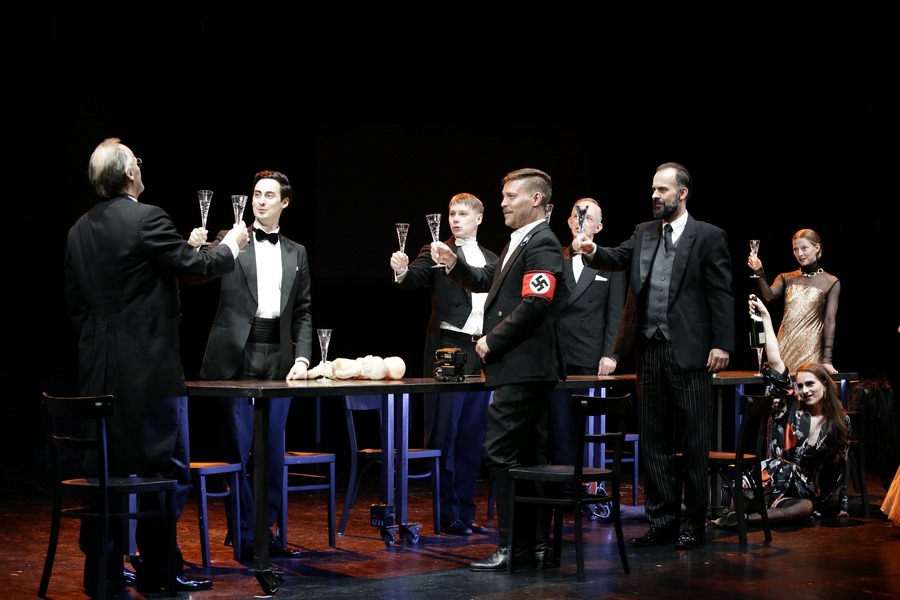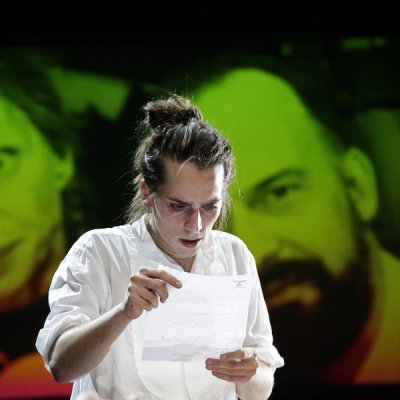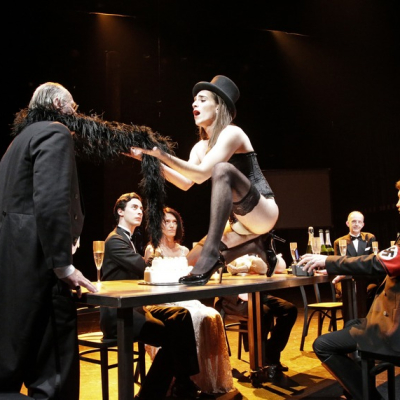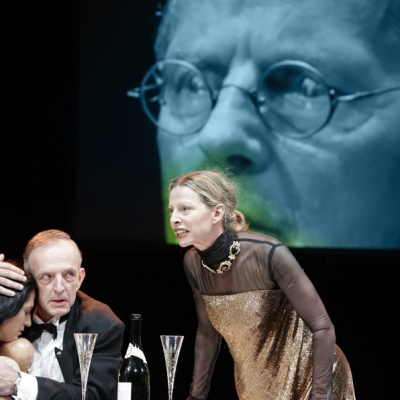The Damned 16
Based on the screenplay by Luchino Visconti, Enrico Medioli and Nicola Badalucco

Slovene National Theatre, Maribor, Slovenia
Director: Dalibor Matanić
Performed in Slovenian with Hungarian and English subtitles
1 hours 40 minutes, without breaks.
Original title: La caduta degli dei; in Slovenian: Somrak bogov
The scope of German political manipulations during the times of the Reichstag fire in February 1933 and, later on, during the Night of the Long Knives in late June 1934, is an important backbone of the play, The Damned. The theme is transposed into the intimate space of Joachim Von Essenbeck's family, a renowned steelmaking dynasty. The times of crisis had imminent effects, as the rapidly decaying old Germany, as well as the alarming emergence of a new German state under the new Chancellor, where of the Von Essenbeck family’s destiny is portrayed. After the death of Baron Joachim, the Von Essenbeck family members, being engaged in their small scale feuds over succession, fail to realize that they have become marionettes and mere casualties of a higher political agenda. The Damned uses the juxtaposition of politics and intimate manipulations, especially, from the aspect of interpersonal relations, to show how meticulously the Nazi government manipulated citizens, years before the official beginning of World War II. In the new war, the state needs the cannons, as much as it thrives on corpses and hatred. Thus, Martin Von Essenbeck hands over the whole family to the Third Reich, so, they are to die one after another, should they consider themselves stronger than the state. Consequently, the new state is no longer a place for communities such as family, as it has become the family itself. In turn, Martin will be the one to cast the last stone, and unleash the deadly sweep of the Von Essenbeck family's sadism. This also brings the last judgement on the once powerful dynasty.
Actors
Elisabeth Thallman, Herbert Thallman's wife: Eva Kraš
Günther Von Essenbeck, Konstantin's son: Timon Šturbej / Matevž Biber
Herbert Thallman, Joachim's nephew: Žan Koprivnik
Baron Joachim Von Essenbeck: Miloš Battelino
Martin Von Essenbeck, Sophie Von Essenbeck's son: Petja Labović
Baroness Sophie Von Essenbeck: Nataša Matjašec Rošker
Friedrich Bruckmann, her lover: Uroš Fürst as guest / Vojko Belšak
Von Aschenbach, member of SS: Kristijan Ostanek
Baron Konstantin Von Essenbeck, Joachim's nephew, member of SA: Davor Herga
Translator: Mojca Marič
Dramaturg: Ivor Martinić
Set designer: Marko Japelj
Costume designer: Leo Kulaš
Language consultants: Mojca Marič, Janez Bostič
Composers: Alen Sinkauz, Nenad Sinkauz
Lighting designer: Vesna Kolarec
Dalibor Matanić
















